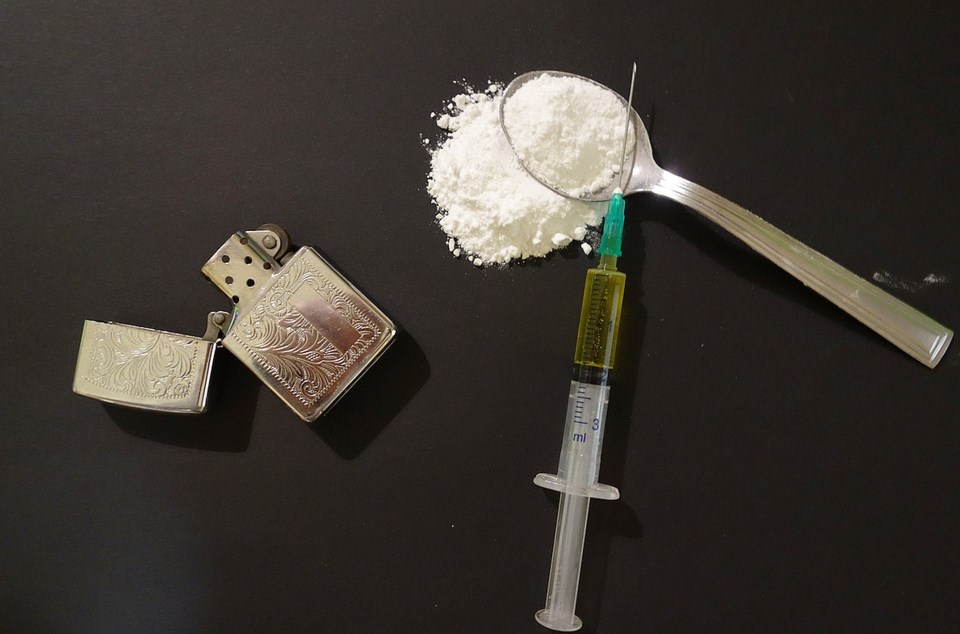So far this year, 15 people in Delta have lost their lives to overdoses.
That grim statistic is part of staff report to council on the ongoing crises as many other Metro Vancouver municipalities are also reaching historic highs in overdose deaths.
Noting there’s been a sevenfold increase in overdose fatalities in Delta in the past decade, the report, which was received at Monday's council meeting, explains that the public health emergency declaration by the provincial government allowed for the collection of, as well as access to, more robust and up-to-date data on overdose activity across the province, including overdose and fatality data from Fraser Health and the B.C. Coroners Service.
Indigenous people and males age 30-to-59, for example, are over-represented in overdose deaths, and the majority of people who are dying are using drugs alone and inside private residences, including social/supportive housing and shelters.
Between January and August 2020, there were 137 overdose events in Delta attended by B.C. Ambulance, 17 of those were in August alone.
In 2019, there were 134 overdose events per 100,000 population, but this year saw a 97 per cent increase in the overdose event rate in Delta, with 265 per 100,000 population as of August. However, while Delta had the highest percentage rate change in the region, the city is still low in terms of total numbers compared with some neighbouring municipalities.
The report also notes that as of Sept. 30, Delta police responded to 41 overdose calls, including assist for Emergency Health Services calls, and Delta’s fire department responded to 31 calls.
Over 75 per cent of the calls occurred between June and September, and more than 50 per cent were from North Delta.
The report also notes that, cumulatively, 82 Naloxone kits have been administered by Delta's police and fire departments in the last four years.
Meanwhile, according to FHA, the number of Opioid Agonist Treatment prescribers in Delta, while remaining low, has doubled in 2020.
The Delta Overdose Community Action Team (DCAT) was established in 2018 as a community-driven collaborative group, co-chaired by Deltassist and FHA.
“It is recommended that staff continue working with DCAT and other partners, such as Delta School District, to support developing a community-driven and evidence-based action plan to address the impacts of COVID-19 on the overdose situation in Delta as well as the needs of Delta's diverse community groups, including school students,” stated the report endorsed by council.
“Further to comments made by Mayor Harvie around youth substance use in particular, it is recommended that as part of its work with community partners, City of Delta ensure that messaging around substance use issues and available resources be promoted via Delta's social media, using advertising space at Delta's bus shelters, and through other channels and community partners, to increase the reach of this information across all segments of the Delta community.”
The report also notes the B.C. Centre for Disease Control and the Overdose Emergency Response Centre work in partnership in providing coordination, monitoring, and evaluation related to the overdose emergency, however, the data in BCCDC’s regular reports is publicly available only at the provincial/regional health authority levels.
“Having access to community-level data is critical in effective community planning processes and would help create a better understanding of the impact of the pandemic in our communities and the effectiveness of overdose response mechanisms in Delta. Staff will continue working with Fraser Health to streamline sharing of overdose-related data specific to Delta,” the report notes.
Among the other endorsed recommendations is having staff work with school district, police and other partners to ensure that early interventions, education and harm reduction supports are readily available to Delta youth and children.
Council will also urge the federal government to recognize the overdose crisis as a national public health emergency and work with the provinces and territories to develop and advance a comprehensive action plan.
Among the community supports, Little House Alcohol and Drug Addiction Recovery Society receives annual funding of $75,000 from the City of Delta to provide counselling and intervention services related to alcohol and drug addiction and recovery for residents and their families.
The Delta Police Youth Liaison Team, meanwhile, works closely with the school district to identify at-risk children and youth and refer them to those counselling services.



